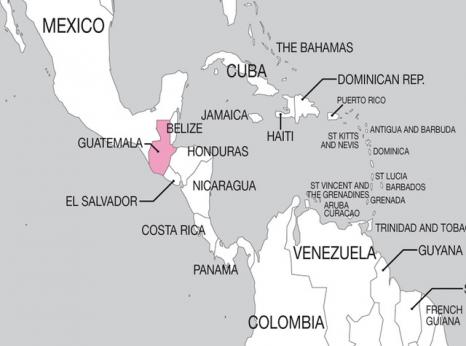Guatemala: Discriminatory Law Puts Lives And Rights At Risk

In 2017, the Guatemalan Congress received Bill 5272. After several rounds of review, Congress passed the law (now Decree 18-2022) on 8 March 2022, International Women's Day, by a majority of 101 votes in favor, with 8 against.
By extending the criminalization of abortion to spontaneous abortion, as well as increasing sanctions and penalties against women and medical personnel, Decree 18-2022 violates the rights of women, girls and others who can become pregnant. Decree 18-2022 also directly discriminates against LGBTIQ+ persons by expressly prohibiting marriages and the recognition of unions between people of the same sex. While same-sex marriage is not recognized in Guatemalan law, Amnesty International considers it dangerous to enshrine such a ban because it foments discrimination and stigmatization. The decree also proposes an exclusionary and discriminatory definition of the family. Furthermore, it dangerously formulates a supposed "right" to "not accept sexual diversity or gender ideology as normal," de facto legalizing discriminatory behaviors, which would foster violence against LGBTIQ+ people. Additionally, the bill violates the rights of boys and girls to access to comprehensive sexuality education, as it prohibits "teaching sexual behaviors other than heterosexuality as normal."
Moreover, in 2021, congressional commissions issued a favorable opinion for Bill 5940 to be discussed in the plenary, despite the fact that said document considers trans children as a "threat," institutionalizes stigma and social hatred against the trans population, and also prohibits materials on trans identities and abortion within public education. This means that this initiative is getting closer to being approved, which would contribute to perpetuating prejudices and hate speech, increasing the risk of violence.
On 10 March, Guatemala's president, Alejandro Giammattei, denounced that the Decree 18-2022 would violate the Constitution and Guatemala's international human rights obligations. He therefore announced that he would exercise his presidential veto power over the Decree, requesting that Congress shelve the bill. However, Congress could still attempt to get the bill passed, as well as Bill 5940.
According to international treaties that Guatemala has signed, the Guatemalan government is obligated to guarantee people’s rights without discrimination, including discrimination based on sexual orientation or gender identity. In its recent observations about the Guatemalan government, the UN Human Rights Committee highlighted its concern about discrimination and violence motivated by victims’ sexual orientation or gender identity, the criminalization of abortion and miscarriage and a lack of adequate reproductive health services. It demands that the Guatemalan government “ensure unimpeded access to sexual and reproductive health services, emergency contraceptives and comprehensive sexuality education.”
For its part, the UN Committee on the Rights of the Child expressly recommended that the Guatemalan government “ensure that sexual and reproductive health education is part of the mandatory school curriculum, and that it is developed with the involvement of adolescent girls and boys, with special attention paid to preventing early pregnancy and sexually transmitted infections.”
At least 32 LGBTIQ+ people were murdered in Guatemala last year as a result of their sexual orientation or gender identity, according to the National Observatory of LGBTIQ+ Rights, with another nine killings reported so far in 2022. The country has also suffered from alarming levels of pregnancies amongst girls and adolescents: according to the National Observatory on Sexual and Reproductive Health, only last year 2,041 girls aged 14 and under gave birth, and the country registered over 65,000 pregnancies in girls and adolescents aged between 10 and 19.